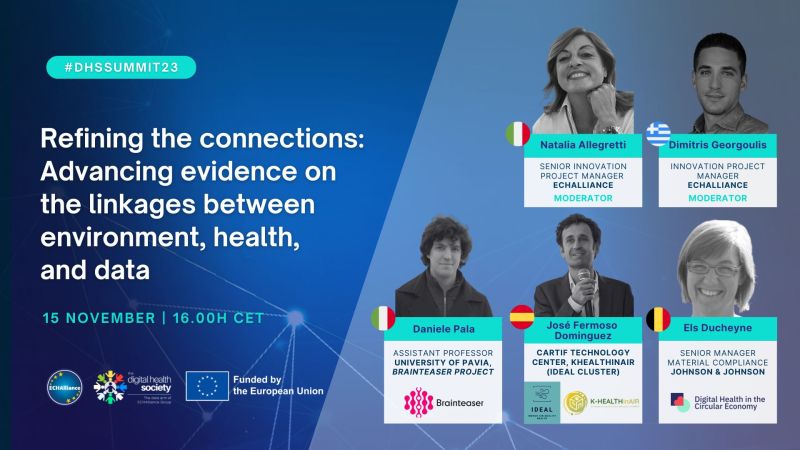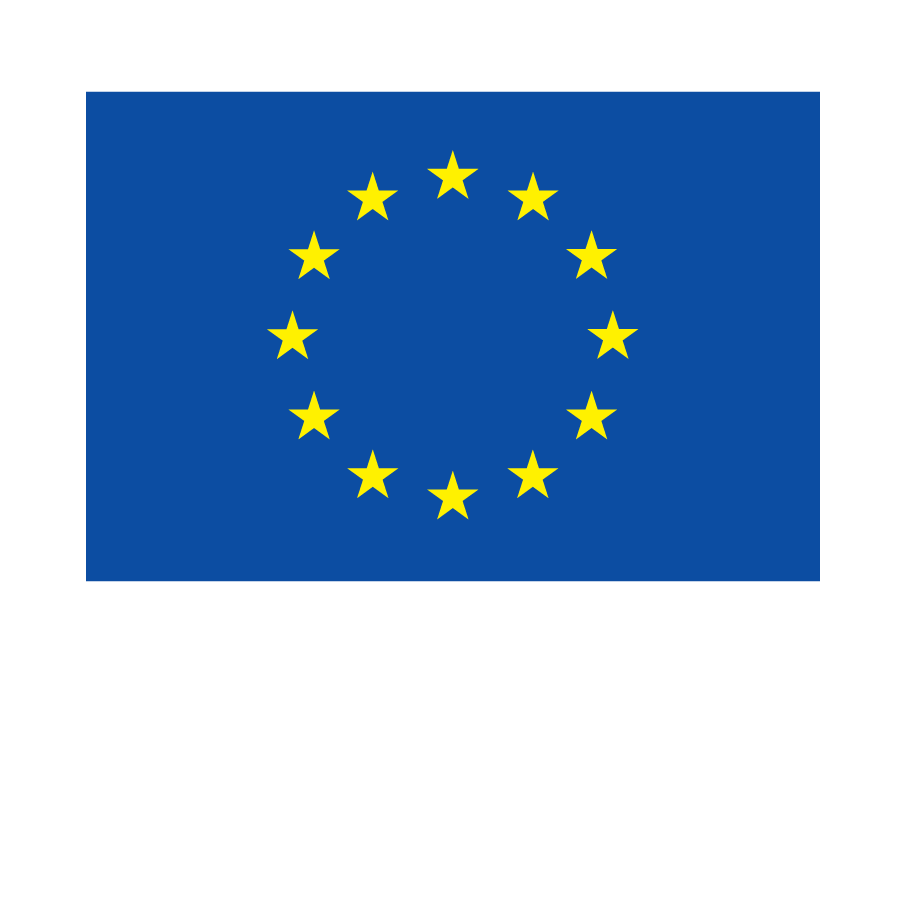The Digital Health Society Summit 2023 session “Refining the connections: Advancing evidence on the linkages between environment, health and data” dived into the relationships between the environment and human health, focusing on the role of data in advancing our understanding of the dependencies between those factors.
Els Ducheyne, Senior Manager Material Compliance at Johnson & Johnson, DiCE project, highlighted the key points of the recently published Manifesto for a European Health and Well-being Deal, by the All Policies for a Healthy Europe initiative. Els focused on the European Health Data Space and its potential to bring together academia, governments, and industry to address critical areas such as data security and ethics, digital/data literacy, patient participation and innovation, delivering threefold value for the European health systems: 1) New treatment options, 2) More targeted treatment, 3) Improved efficiency of healthcare systems spending.
Daniele Pala, Assistant Professor (RTDa) at University of Pavia, BRAINTEASER project scientific partner, focused on environmental pollution and its contribution to the development and progression of diseases, highlighting its combined effects with other kinds of environmental exposures (e.g., diet, habits) and socioeconomic factors. According to Daniele, advancements in data mining and artificial intelligence can certainly help to better understand the impact of pollution on health, especially for patient stratification, outcome prediction and calculation of exposure.
José Fermoso Domínguez, Researcher from the Natural Resources and Climate Area at CARTIF Technology Center, K-HEALTHinAIR project coordinator and member of the IDEAL Cluster, focused on the correlation between indoor air pollutants and human health, highlighting that these pollutants have a more significant negative impact on children , the elderly, and people who suffer from certain diseases (e.g. respiratory and cardiovascular diseases, as well as diabetes). Asked about the status in Europe regarding Indoor Air Quality standardization and legislation, Jose explained that the vast variety of indoor pollutants is the main challenge towards progress in this field, making reference to the K-HEALTHinAIR project and the IDEAL Cluster, which aim to identify pollutants, to improve indoor air quality and to provide user-friendly IAQ monitoring tools.
Watch the session recording:



Leave A Comment